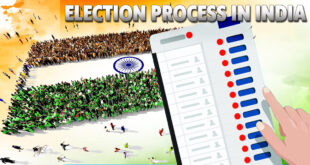By requiring long-term residents of Assam to prove their citizenship by negotiating a thicket made up of bewildering and opaque rules and an uncaring bureaucracy, the Indian state has for the past two decades unleashed an unrelenting nightmare of wanton injustice on a massive swathe of its most vulnerable people. Distressing cycle The official presumption that they are foreigners has reduced several million of these highly impoverished, mostly rural, powerless and poorly lettered residents to a situation of helplessness and penury. It has also caused them abiding anxiety and uncertainty about their futures. They are required to persuade a variety of usually hostile officials that they are citizens, based on vintage documents which even urban, educated, middle-class citizens would find hard to muster. And even when one set of officials is finally satisfied, another set can question them. And sometimes the same official is free again to send them a notice, starting the frightening cycle afresh. On February 2 and 3, I was in Guwahati listening to heart-breaking accounts from 53 people from 13 districts of Assam. This was as part of a people’s tribunal on the National Register of Citizens (NRC), along with Justice Venkate Gopala Gowda, Colin Gonsalves, Monirul Hussain and Sanjoy Hazarika. What emerged were numbing stories of unyielding official bias and arbitrariness, of the denial of elementary “due process” and, above all, the complete absence of public compassion. Even old men frequently broke down as they spoke of all that they had endured. It emerged that the names of many persons were dropped from the draft NRC only because of minor differences in the spelling of Bengali names in English in different documents. We encountered several instances where the variation of a single letter, for example between Omar and Onar, was enough to rule that a person is a foreigner. Likewise, the rural unlettered are typically vague about their dates of birth. A person could be excluded from citizenship if she told the tribunal that she was 40 when her documents recorded her to be 42. Tougher on women Women are especially in danger of exclusion from the citizenship register. Typically, they have no birth certificates, are not sent to school, and are married before they become adults. Therefore, by the time their names first appear in voters’ lists, these are in the villages where they live after marriage, which are different from those of their parents. They are told that they have no documents to prove that they are indeed the children of the people they claim are their parents. There were cases of being excluded from citizenship on this ground alone. Impoverished migrant workers often travel to other districts of Assam in search of work, as construction workers, road-builders and coal-miners. In the districts to which they migrate, the local police frequently record their names as illegal immigrants from Bangladesh. The police then mark them out as illegal immigrants. They receive notices from foreigners’ tribunals located in districts where they might have worked years earlier, far away from their home districtsthey have to travel to for every hearing, adding further to their costs.
Check Also
Election process in India
Concept India, the world’s largest democracy, conducts elections of immense scale and complexity. The electoral …
 Chinmaya IAS Academy – Current Affairs Chinmaya IAS Academy – Current Affairs
Chinmaya IAS Academy – Current Affairs Chinmaya IAS Academy – Current Affairs



